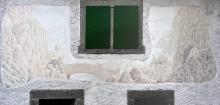Problem file
See attached image... It's impossible to upload
Version: 1.20.x
Severity: normal
See Also:
T26230: Implement JAR detection
T56105: gif upload fails with complaint about it being a "corrupt or otherwise unreadable ZIP file."
T40432: Uploading MS Word files doesn't work ("File extension does not match the detected MIME type of the file")
T73954: PDF with OpenDocument embedded causes bad-zip
Attached:
